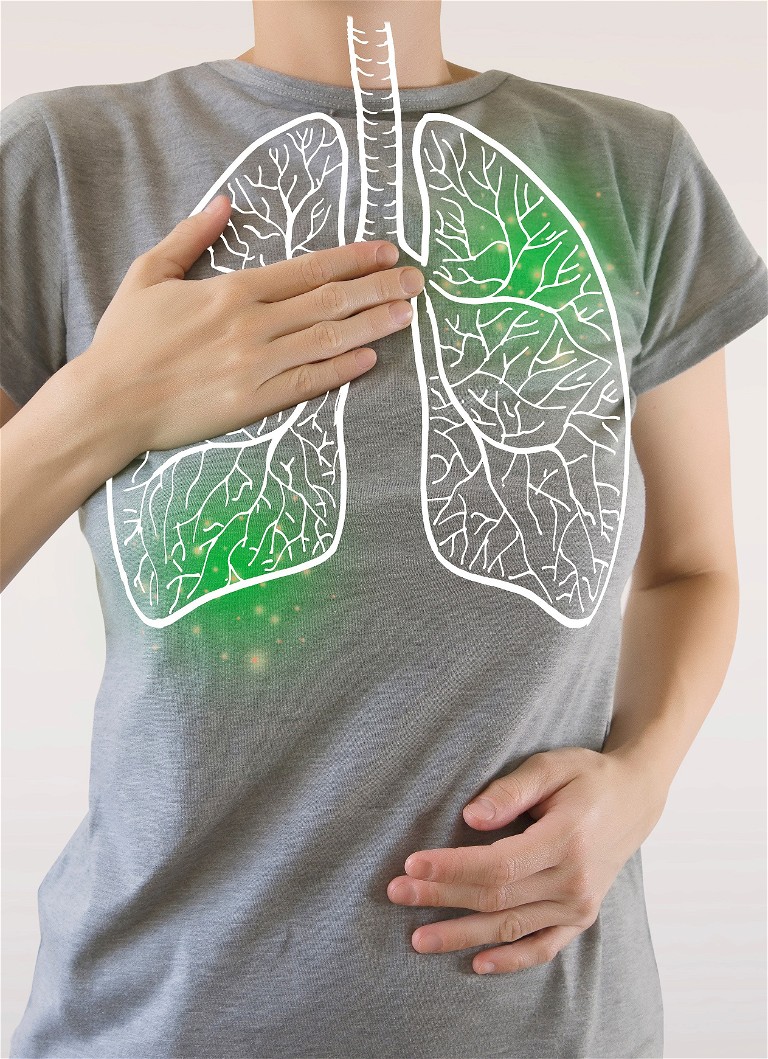Industry Insight
The impact of climate change on respiratory health

With the first ever COP health event being held in December 2023, Shishir Patel from Chiesi UK and Ireland reflects on the need to align environmental and health strategies and shares his work building a clearer picture of how climate change can impact respiratory health
Lessons from the first ever COP Health Day
In December 2023, for the first time, the Conference of the Parties (COP) United Nations (UN) climate conference, with partners such as the World Health Organization (WHO) and the Wellcome Trust, designated a ‘Health Day’ to focus attention on the impact of climate change on human health.1,2 Professionals in the pharmaceutical industry found it fascinating to see how a space traditionally occupied by environmentalists and experts of the natural world is moving in parallel with the world of healthcare. For some time now, there has been growing evidence that climate change can have a profound impact on human health as well as the health of our planet, and that climate change can no longer be addressed as an isolated environmental issue.3 As the impact of climate change grows and draws closer to home for all of us, we need to fully understand how its results will impact the most vulnerable in our society such as those with serious, chronic lung conditions including asthma and chronic obstructive pulmonary disease (COPD).
It was encouraging to see this relationship between climate change and health explored on the world stage and as Alan Dangour, director of Climate and Health at the Wellcome Trust, stated: “COP28 has the power to either save lives or cost lives.”4 A key goal of the COP28 Health Day was about showcasing the evidence base and the clear impact pathways between climate change and human health.1 This closely aligns with the work various pharma companies have been undertaking in recent years, for example to better understand the impact of air quality and climate change on those with chronic lung conditions.

Breathing ‘not so’ easy – the impact of the UK environment
It is estimated that around eight million people in the UK have asthma, which amounts to around 12% of the population with a further 1.2 million diagnosed with COPD.5,6 There remains a significant undiagnosed population across both diseases.7,8
Systemic challenges exist in receiving timely and accurate diagnoses and effective treatment to manage conditions, however, the air inhaled by patients is also having a significant impact. For instance, here in the UK, an estimated 43,000 early deaths can be attributed to air pollution every year, and the UK has the highest death rate for asthma in Europe.9,10
People living with lung conditions are experiencing a growing and tangible impact from climate-driven factors such as extreme weather conditions including heatwaves, increased pollen loads and increased duration of pollen seasons, with pollution from traffic and industrialisation presenting daily challenges for those living with chronic lung conditions.
Various companies have been working on reports assessing the impact of climate change on patients with chronic lung conditions such as asthma and COPD, providing a unique patient perspective of the lived experience of climate change.
Reports have showed that climate change factors such as heatwaves and pollen are having an impact on respiratory health and that poor air quality negatively affects symptoms, overall health and quality of life for people with lung conditions.
Of those surveyed, 69% said they believed air quality had worsened in their area in the last five years, and 48% of those living in areas with poor air quality believed that it made their symptoms worse.9
Paradoxically, weather and climate-related effects such as high heat and humidity can be a trigger for asthma, while extreme cold weather can increase respiratory infections in those with COPD, so there are nuances but extremes of weather patterns that are increasing do not support optimal respiratory health.11
Furthermore, reports recognised that those in urban areas feel they face a greater burden of poor air quality and highlighted that the degree and impact vary, citing that ‘any examination of the link between air quality and health has to consider the socio-economic aspect’ and that more research is needed to further explore the intersection of air quality, health inequalities and lung health.
Is air fair?
Digging deeper into the issue of health equity, a pivotal report published by Asthma + Lung UK in 2021 provided a stark reminder of the health inequalities that exist, for instance 85% of people living in areas with illegal levels of nitrogen dioxide (NO2) make up the poorest 20% of the UK population.12
“The themes of the COP health day provide further focus on how we can drive change within the pharma industry, such as how we can make R&D more accessible and sustainable”
Action over words – the health of our planet and its inhabitants deserves our best efforts
In addition to increased public health awareness and continuing research, pharma companies know that we must go beyond rhetoric to make a meaningful difference for people living with chronic respiratory conditions.
Some pharma companies have begun investing heavily in reducing their carbon footprints and working towards a global commitment to become Net Zero by 2035. Furthermore, significant and innovative research and development (R&D) efforts to develop carbon minimal products, such as inhalers, aim to bring solutions that equally serve patients and the planet.
Pharma must do what it does best: innovate
The themes of the COP health day provide further focus on how we can drive change within the pharma industry, such as how we can make R&D more accessible and sustainable. Whether this is clinical trial recruitment from a broader cross section of society to deliver true patient representation, making trials more ethical in terms of who is participating but also ‘greener’ by considering factors such as decentralisation, water and waste reduction, and how we can embrace artificial intelligence and digital technology to drive efficiencies. Crucial to this is how we can reduce the environmental impact of our products – therapy, medicine or device – by investigating alternatives and bringing greener solutions to market as we support the NHS in achieving its Net Zero targets.
It is a significant commitment for our industry, and some pharma companies have invested significantly in facing the challenge head on. We have the potential to drive positive change in the years ahead, but we must also ensure that such innovation and investment is incentivised and rewarded in the UK. No longer can a medicine’s value only be determined by its mechanism of action, it must also be determined by its impact on the planet. We must evolve policy, regulation and reimbursement frameworks to recognise and support this necessary shift.
It is hoped that health will continue to be an enduring focus at future COP conferences and those in the industry should look forward to seeing discussions form into actionable guidance and policies that can support those living with chronic diseases.
References
- Visit: who.int/news-room/events/detail/2023/12/03/default-calendar/cop28-health-day
- Visit: wellcome.org/what-we-do/climateand-health/cop28
- Visit: who.int/news-room/fact-sheets/detail/climate-change-and-health
- Visit: wellcome.org/what-we-do/climateand-health
- Visit: statistics.blf.org.uk/asthma
- Visit: statistics.blf.org.uk/copd
- Visit: journals.sagepub.com/doi/10.1177/1479972310364587
- Visit: breathe.ersjournals.com/content/15/1/e20#sec-9
- Visit: asthmaandlung.org.uk/media/press-releases/toxic-air-could-be-causing breathlessness-over-two-million-people
- Visit: ec.europa.eu/eurostat/databrowser/view/HLTH_CD_ASDR2__ custom_2053067/default/table?lang=en
- Visit: err.ersjournals.com/content/23/132/161
- Visit: asthmaandlung.org.uk/sites/default/files/Clear_the_air_report_ v2.pdf
Shishir Patel has worked as medical director for UK & Ireland at Chiesi Limited for five years and has worked consistently within the pharma industry for 30 years. Initially, he gained experience within large pharma companies where he gained field-based medical experience and established a foundation in Medical Affairs working across a number of therapy areas. He started with Chiesi 24 years ago and in the last 15 years, has held several senior roles within Chiesi at both an affiliate and global level, including a commercial role at global HQ in Italy during his four years working out of Parma, Italy.